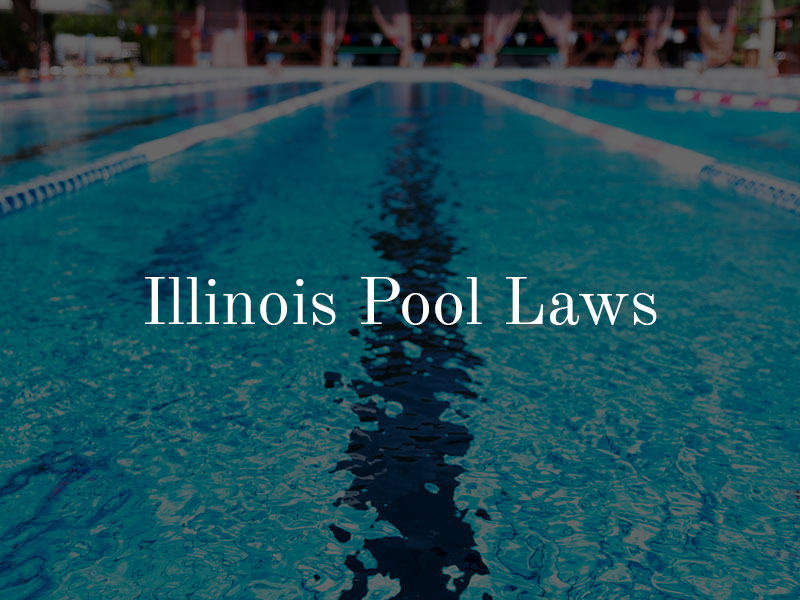Illinois Swimming Pool Laws
Catastrophic Injury,Personal Injury,Premises Liability,Slip and Fall - September 18, 2019 by Horwitz, Horwitz & Associates
If you have a swimming pool in Illinois, you need to understand the laws regarding keeping it safe. You have a legal responsibility for keeping all areas of your property safe, regardless of whether you are a business owner or you own a private residence.
Illinois Premises Liability Laws
The main laws that regulate pools in Illinois will fall under premises liability and the attractive nuisance doctrine.
Under premises liability laws, property owners have a duty to keep their premises reasonably safe from hazards, including ones they should know about but may not be aware of. This includes keeping the pool and surrounding area in good condition and providing adequate security around the area.
Attractive Public Nuisance Laws
When talking about an attractive public nuisance, we are looking at the fact that children are attracted to potential dangers, including unsupervised swimming pools. In most circumstances, children do not fully understand the dangers associated with pools and the property owner must take steps to safeguard them. This includes being aware that children may trespass into the pool area. Pool owners should ensure there are certain safety features in place, including:
- Fences surrounding the pool with locking gates
- Signs warning that no trespassing is allowed
- Alarms around the pool area
Illinois Public Pool Laws
Public pools in Illinois must have the following:
- A sign enumerating the maximum occupancy for the pool.
- A “no lifeguard” sign that states no children under 16 years of age may swim without adult supervision.
- A sign with pool rules and regulations posted at the entrance to facilities and dressing rooms.
All public pools must be completely enclosed that is:
- At least four feet high and has no footing allowing for climbing.
- No greater than a four-inch vertical clearance from the bottom of the fence to the ground.
- No openings along the fence greater than four inches wide.
Additionally, all entrances to the pool area must have locking gates that are self-closing and self-latching.
Illinois Residential Swimming Pool Laws
Residential swimming pools do not have to abide by the same signage rules, but they must be completely surrounded by a barrier that is at least 3.5 feet tall. This rule is not applicable to hot tubs or above-ground pools taller than 3.5 feet.
Dangers of Swimming Pools
Drowning is the number one cause of unintentional injury death in children ages 1 to 14. The Centers for Disease Control (CDC) tells us that nearly 300 people drown each year and thousands more are admitted for submersion incidents. Nearly ten people die from drowning each day n the US.Pool incidents happen all the time. These can include:
- Slip and fall accidents
- Drowning or near-drowning
- Chemical incidents
Today, we want to discuss some of the causes of swimming pool incidents as well as the Illinois laws regarding safe pools.
Causes of Pool Injuries
Whether the pool in question is part of a business or on private property, the number one aspect is safety. Nobody wants to see anyone get hurt at a swimming pool. The main causes of pool incidents include:
- Improper pool barriers
- Lack of supervision of pool occupants
- Improper chemical treatment
- Hazards like broken wood, glass, and nails
- Loose stairs of ladders into the pool
- Poorly maintained areas around the pool
- Faulty pool covers or pumps
If you are a business owner or own a private residence with a pool, please ensure you follow all state and local laws regarding the safe operation of your pool. Not properly following Illinois pool laws can lead to premise liability or an Illinois wrongful death lawsuit in the event of a fatal accident. If you have been involved in a swimming pool accident that as a result of failure to abide by Illinois swimming pool laws, call our personal injury attorneys today for a free consultation.



